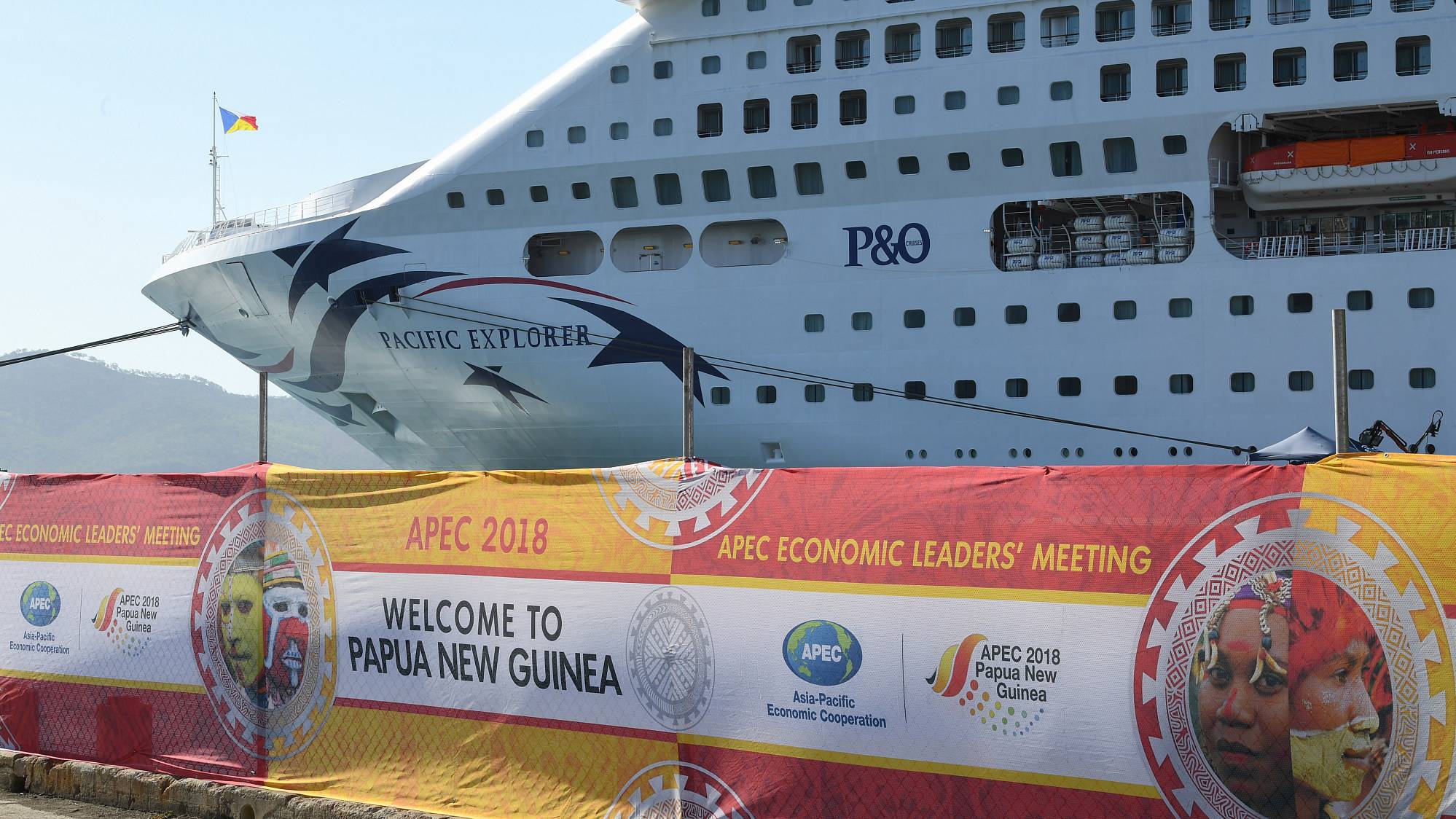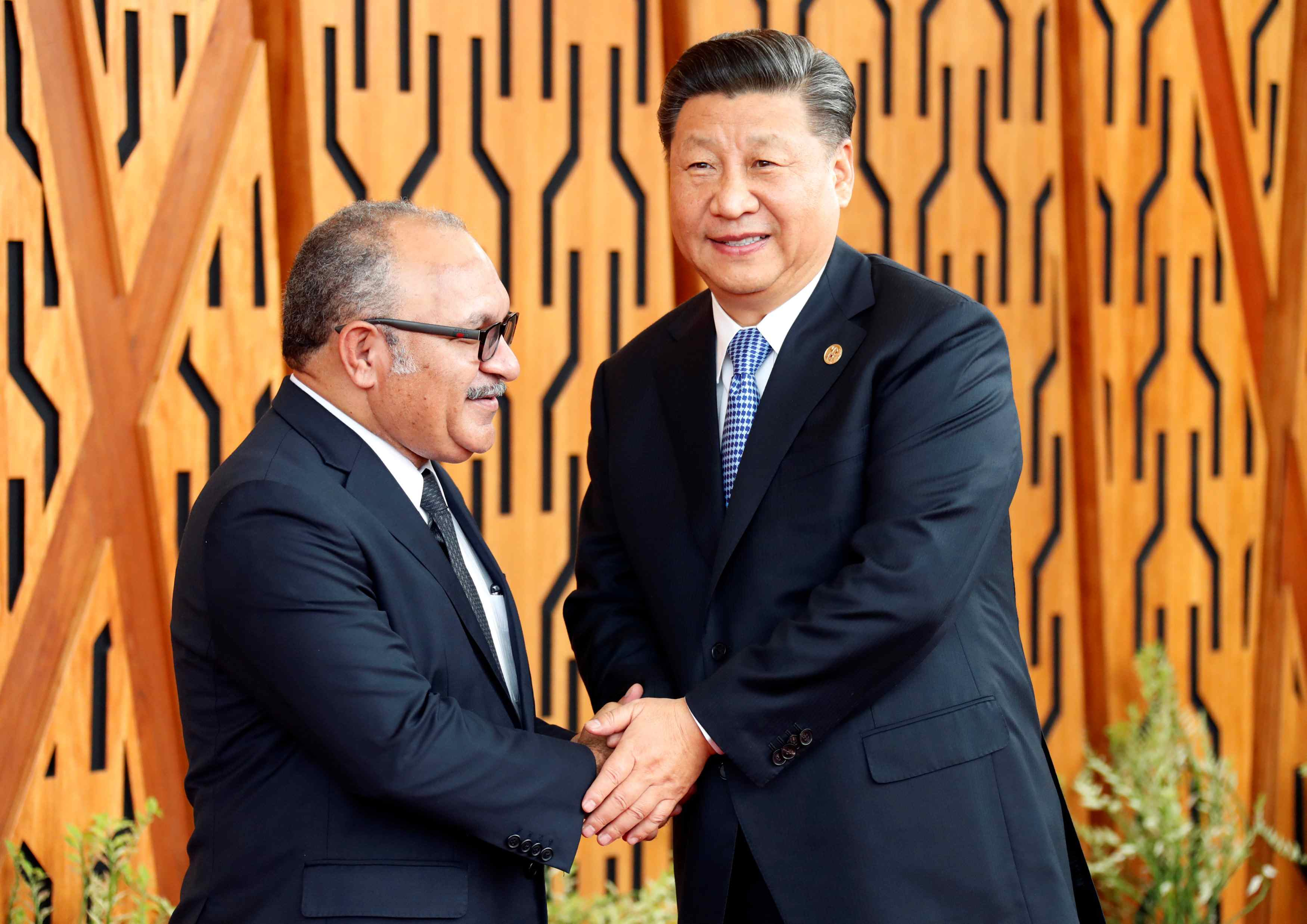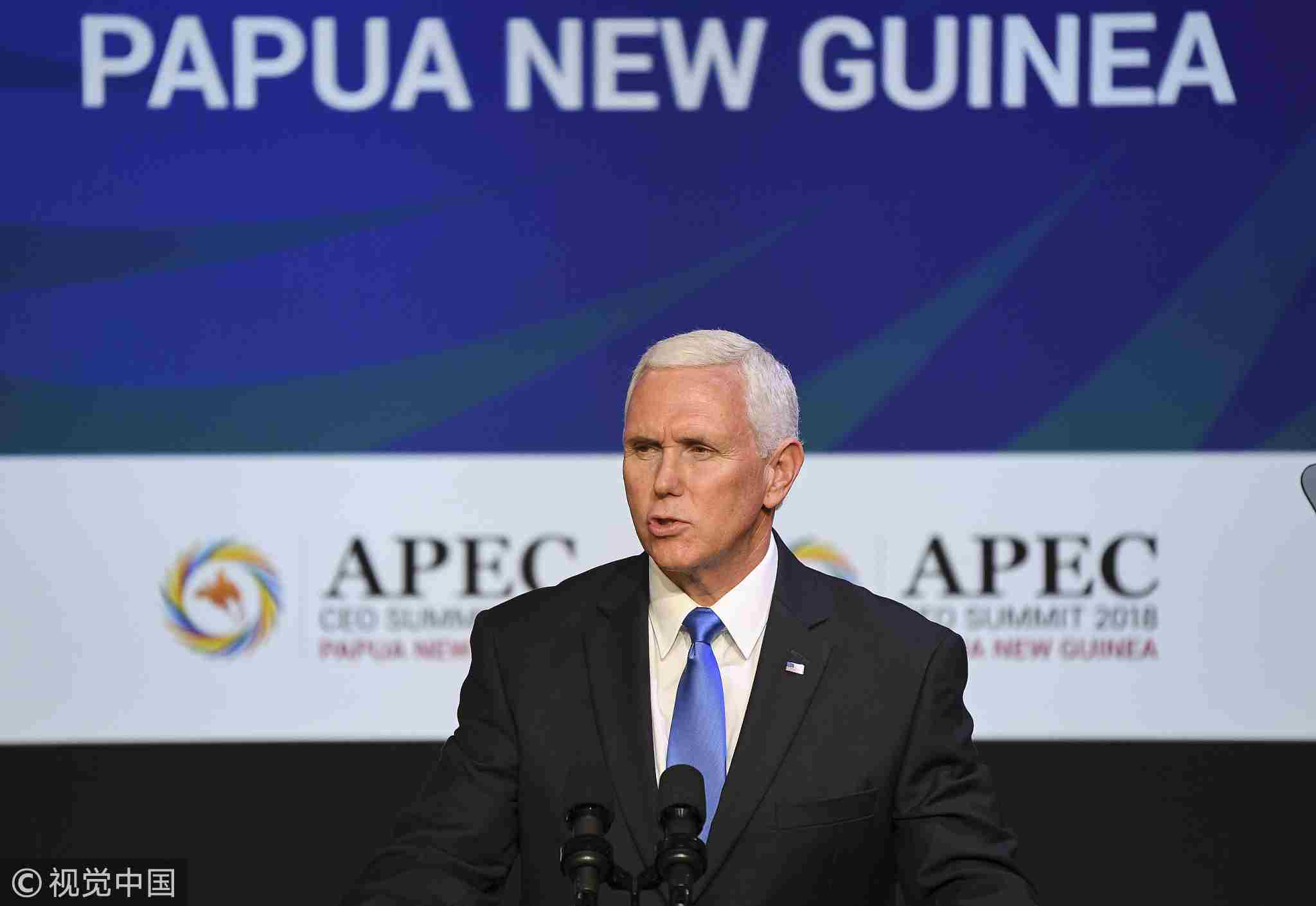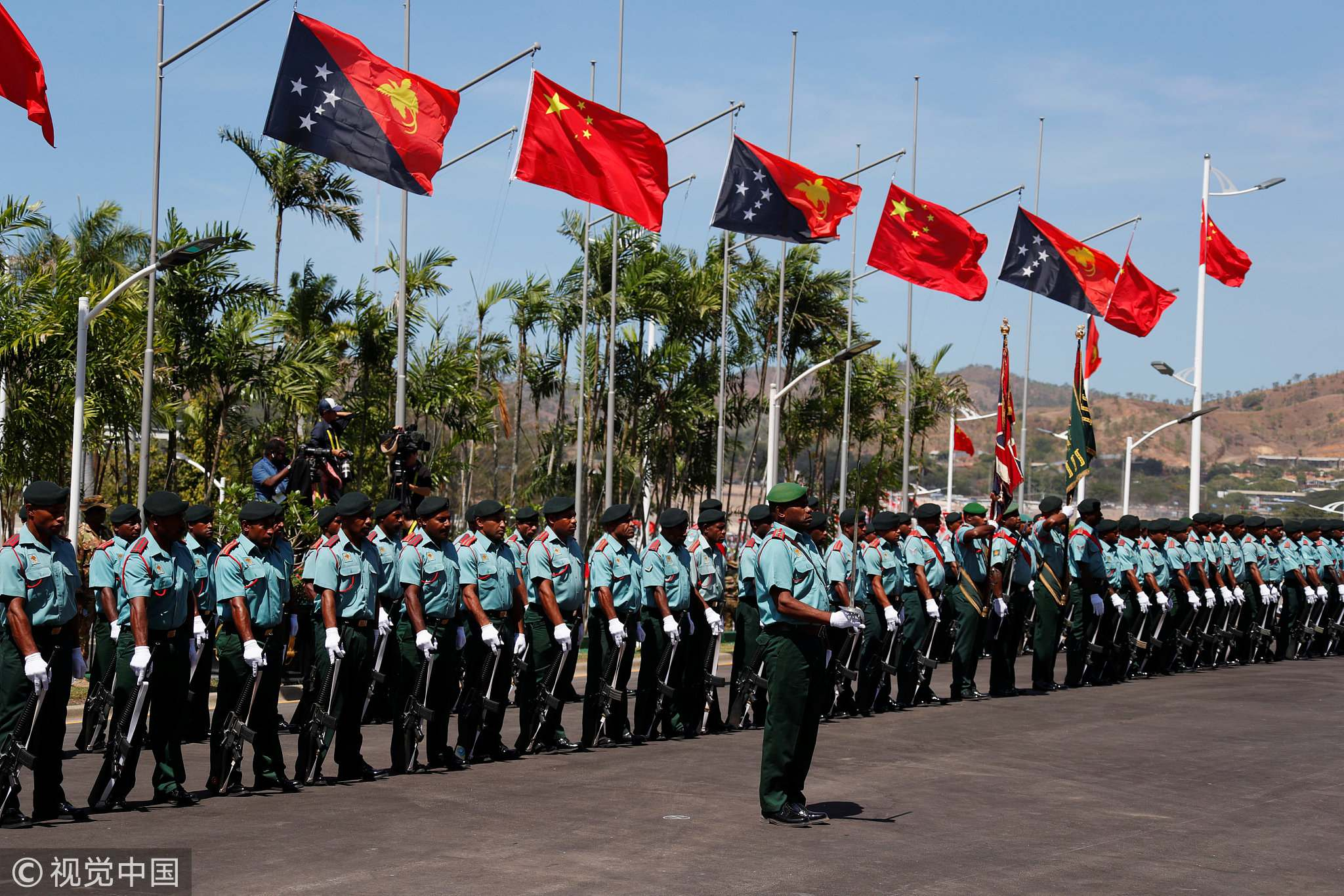
Opinions
23:09, 17-Nov-2018
Opinion: US should learn from China in backing inclusive growth
Updated
22:10, 20-Nov-2018
By CGTN's Liu Jianxi

Editor's note: The article is based on an interview with Sun Yuanjiang, principal communication officer of the Asian Infrastructure Investment Bank. The article reflects the expert's opinion, and not necessarily the views of CGTN.
Openness and cooperation are two major key words in Chinese President Xi Jinping's keynote speech at this year's APEC CEO Summit in the capital of Papua New Guinea (PNG) on Saturday.
"Shall we uphold cooperation or confrontation, openness or closing doors, win-win cooperation or zero-sum game? The answers matter to the interests of every nation and the future of the mankind as a whole," President Xi stressed.
While acknowledging global economic achievements, Xi warned against the perils of rising protectionism and unilateralism.
Trade barriers are contrary to economic rules and historic trend, and inconsistent with people's common aspiration, the president said, warning that unilateralism and protectionism are "a short-sighted choice that will lead nowhere."

Chinese President Xi Jinping (R) is greeted by Papua New Guinea's Prime Minister Peter O'Neill as he arrives for the APEC Summit, Port Moresby, Papua New Guinea, November 17, 2018. /Reuters Photo
Chinese President Xi Jinping (R) is greeted by Papua New Guinea's Prime Minister Peter O'Neill as he arrives for the APEC Summit, Port Moresby, Papua New Guinea, November 17, 2018. /Reuters Photo
The speech was delivered against a backdrop of rising trade tensions between China and the US, the world's two largest economies.
Sino-US frictions have not only exerted negative effects on their bilateral trade and domestic economies, but also brought a great deal of uncertainties to the Asia-Pacific and the whole world.
President Xi emphasized at the APEC meetings that China is a firm supporter of a rule-based multilateral trade system. In the past four decades since reform and opening up, China has spared no effort in promoting open, free and inclusive growth. Apart from further opening up its domestic market, China is also dedicated to promoting global economic integration.
The country's consistent stance on the open economy has been reiterated on a number of international occasions.
President Xi stressed at the Bo'ao Forum for Asia held earlier this April that "openness leads to progress while seclusion leaves one behind." He also pledged at the just-concluded China International Import Expo that "China's door will be opened even wider."

US Vice President Mike Pence speaks at the APEC CEO Summit in Port Moresby, Papua New Guinea, November 17, 2018. /VCG Photo
US Vice President Mike Pence speaks at the APEC CEO Summit in Port Moresby, Papua New Guinea, November 17, 2018. /VCG Photo
However, China's relentless efforts in opening up have been met with barbs from Washington. In a bluntly worded speech, US Vice President Mike Pence threw down the gauntlet to Beijing. "The United States, though, will not change course until China changes its ways," Pence warned, threatening to double US tariffs on China unless the latter bows to US demands.
While President Xi's speech can be interpreted as China's offer on the negotiation table over the brewing Sino-US trade war, there was no hint of compromise from Pence.
Whether the APEC, a platform dedicated to economic integration, would bring a thaw in Beijing-Washington trade frictions and even facilitate a deal in the upcoming Xi-Trump meeting has been a focus of attention for some time, but Pence's tough rhetoric may be disappointing news.
Political will is of utmost significance to end the ongoing trade battle, but so far, the Trump administration has been acting capriciously on the issue, overshadowing Sino-US strategic and economic relationship that carries great weight in the development of the Asia-Pacific region and even the whole world. Without doubt, Washington should shoulder its due responsibilities as a major power.

Honor guards at a welcome ceremony for Chinese President Xi Jinping during a state visit, at Parliament House in Port Moresby, Papua New Guinea, November 16, 2018. /VCG Photo
Honor guards at a welcome ceremony for Chinese President Xi Jinping during a state visit, at Parliament House in Port Moresby, Papua New Guinea, November 16, 2018. /VCG Photo
Unlike Washington, China is persistent in its adherence to open trade and responsibilities towards APEC members, especially South Pacific island countries that are in urgent need for infrastructure improvement.
It's worth noting that PNG, in a warm welcome for Xi, posted the Chinese president's images on massive billboards across the capital, and the streets were lined with students waving Chinese flags.
China's investments in PNG almost tripled year-on-year to 2.46 billion US dollars in 2017, according to statistics from China Global Investment Tracker.
Washington, on the contrary, has been acting nonchalantly in investing in the region. Worse still, some Westerners have even hyped this year's APEC meetings as a "China show" and an attempt by Beijing to vie for more influence in the region. This is apparently sour-grape mentality.
China has no intention to expand its political influence or seek hegemony in the Asia-Pacific.
As a responsible power, China is willing to aid PNG's development by boosting infrastructure there, as it is an endeavor to bring multi-win results. Washington, as the world's largest economy, should learn from Beijing in this regard.
(If you want to contribute and have specific expertise, contact us at opinions@cgtn.com.)

SITEMAP
Copyright © 2018 CGTN. Beijing ICP prepared NO.16065310-3
Copyright © 2018 CGTN. Beijing ICP prepared NO.16065310-3